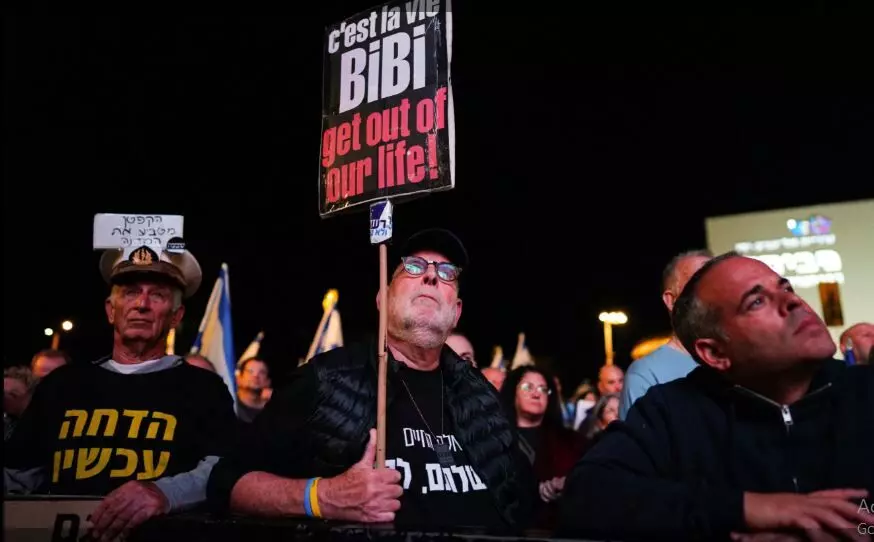
Escalation of regional war likely with Israeli forces’ prolonged Gaza war plan
text_fieldsAmid escalating anger among Israelis against Prime Minister Benjamin Netanyahu and his far-right coalition government over the ongoing war in Palestine, the Israeli Military hinted at a prolonged war lasting a year.
The IDF announced that its focus in the war was to eliminate Hamas fighters from south Gaza, which they believe to be dense and saturated with Hamas militants, containing an underground city of branching tunnels, presenting a significant challenge for the IDF.
Israel's Prime Minister, Benjamin Netanyahu, has declared that the war will not end until specific objectives are met, including "crushing" Hamas, freeing Israeli hostages, and ensuring that Gaza no longer poses a security threat.
The latter point is crucial for Israel's defence minister, Yoav Gallant, who suggested a shift in governance, with unspecified Palestinian bodies taking control.
According to Maj Gen Amos Yadlin, a former head of military intelligence, dismantling Hamas, the militant group controlling Gaza, is expected to take a year. Yadlin drew parallels with past military campaigns, comparing it to the multinational coalition's efforts against the Islamic State in 2017, which took nine months. However, he highlighted the more challenging conditions in Gaza, emphasizing the fortified underground nature of the region.
The extended timeline raises concern among international observers and aid agencies, fearing a deepening humanitarian crisis and a potential threat to regional stability. The campaign's impact on civilians is already severe, with over 22,400 casualties reported, and thousands more believed to be buried under rubble.
The situation has prompted the U.S. Secretary of State, Antony Blinken, currently on a Middle East tour, to demand more protection for civilians in Gaza, increased aid access, and detailed proposals for the territory's governance post-offensive.
Blinken is expected to address these concerns in a meeting with Netanyahu, potentially leading to discussions on a more precise approach to targeting Hamas fighters to minimize civilian casualties.
The conflict's ripple effects are felt beyond Gaza, with violence escalating in the occupied West Bank. A recent Israeli airstrike on the northern city of Jenin resulted in nine casualties, including seven Palestinians. Mass protests have erupted in Israel, with demonstrators calling for the return of Israeli captives held in Gaza and an end to the conflict.
In Tel Aviv's "Hostage Square," several thousand supporters, friends, and families of the Israeli captives held by Hamas rallied, demonstrating an unprecedented level of anger and frustration. Protesters blamed the government, particularly Prime Minister Netanyahu, for the events of October 7 and demanded the return of over 100 captives still held in Gaza.
As the conflict persists, concerns about a potential escalation of clashes along Israel's northern border with Hezbollah are mounting. This apprehension stems from the fear that the regional instability could spiral into a wider conflict, further complicating the already dire situation.
The IDF's campaign strategy indicates a shift towards "a different method" in the centre and south of Gaza, utilizing lessons learned and developing innovative approaches to combat the entrenched Hamas infrastructure. However, the mention of planning buffer zones with heavy mining raises controversy and adds to the complexity of the situation.























